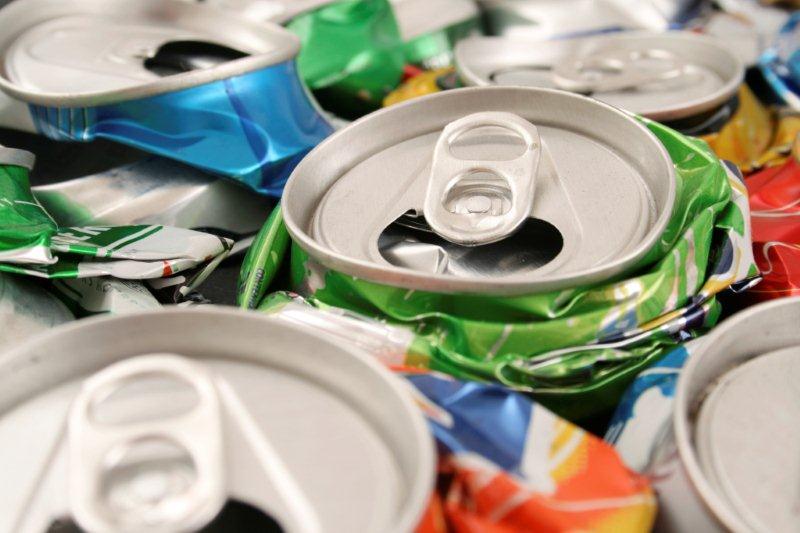The NSW Government’s 10 cent refund container deposit scheme (CDS) on drink containers has been criticised by industry groups for placing “additional price pressure on beverages.”
The CDS, which takes effect from July 2017, has been described by the state government as “the single largest initiative ever undertaken to reduce litter in NSW”. The program entitles consumers to a 10 cent refund on drink containers when they return them to allocated collection points.
However, the initiative has been met with disappointed by industry groups as the funding of the 10 cent refund, as well as the associated handling and administration fees, will need to be provided by beverage suppliers.
Gary Dawson, CEO of the Australian Food and Grocery Council (AFGC), said the AFGC supports the state government’s litter reduction target to reduce the volume of litter across the state by 40 per cent by 2020 in a cost effective way but is “disappointed” by its decision to adopt a refund CDS scheme.
“We are disappointed that the government has chosen to adopt a refund CDS scheme, as the Thirst for Good proposal goes beyond a narrow focus on beverage containers to target all litter in order to achieve the government’s target, with modelling showing a 30 per cent reduction in litter in the first year,” Mr Dawson said.
“Industry has almost 40 years’ experience operating refund container deposit schemes in South Australia and the Northern Territory and we will continue to work with the government with a view to minimise the cost impact on consumers and industry, avoid duplication of existing waste collection and disposal infrastructure where possible and ensure NSW remains an attractive place to do business.”
AACS concerned about impact on small business
The Australasian Association of Convenience Stores (AACS) is also opposed to the CDS, saying the end result is another tax on retailers, including small businesses.
According to AACS, the CDS will put additional price pressure on beverages and this will have a clear negative on convenience stores, as beverages are one of the channels most important categories.
AACS CEO, Jeff Rogut, said imposts like a CDS are going to be a competitive disadvantage in an already challenging market.
“In an environment where the two major supermarket chains enjoy such dominance in the Australian retail landscape, additional price pressure on beverages – one of the most important categories to convenience stores – will have a clear negative impact,” he said.
Mr Rogut said that while the NSW Discussion Paper acknowledges a CDS model involves “financial incentives can increase the cost of the product at the point of sale, even if the consumer can recoup the majority of that cost by redeeming the empty container” the Discussion Paper does not acknowledge the impact this will have on retailers.
“Schemes – or taxes – like this raise the cost of products while contributing to a shift in consumers’ shopping habits away from small businesses to the major supermarkets, which have the buying power to offset prices rises in certain categories.
“Therefore, in the implementation of a CDS in NSW, we urge the NSW Government to recognise the imposts of the scheme on small businesses in the convenience industry and seek to minimise the negative financial impacts on beverage prices.”
Beverage manufacturers: No immediate impact
In an announcement to the Australian Securities Exchange, Coca-Cola Amatil (CCA) said the impact of the scheme was yet to be felt.
“Given the scheme will not be implemented for some time, there is no immediate impact for the company. CCA is working through the potential implications and once further details are known, will update the market as appropriate,” CCA said.
C&I Week has contacted several other beverage manufacturers for comment, however they have declined to comment at this stage.


The Container Deposit Scheme is a discriminatory tax. Anyone who has read the 67 page Discussion Paper will know the EPA estimates that around 64% of the 4.2 billion drink containers are recycled, 32% went to landfill and the remaining 4% was littered.
The aim of the CDS scheme is to reduce 4 in every 100 drink containers now littered. This discriminatory tax is to be charged on only ‘some’ beverage containers.
Based on comprehensive research the CDS poses many challenges and uncertainties for the beverage industry in particular the costs to administer the scheme.
All the literature and research behind the CDS says the NSW recycling scheme is 96% efficient in collecting all household and local community’ rubbish.
Yet, in this new scheme only beverage manufacturers who produce a fruit juice, a beer, carbonated & non carbonated soft drinks, flavoured milk and water are taxed. Only these products will be taxed in the hope to change the irresponsible actions of a small minority.
Am I to assume the research behind the CDS feels products wrapped in paper, disposable cups, food packaging, the massive variety of products sold in cardboard boxes, wrappings from take-away food outlets, etc are not regarded as litter? None of these packaging materials are taxed.
The end result is another tax on retailers and family owned beverage manufacturers. A huge impost on an already challenging economy.